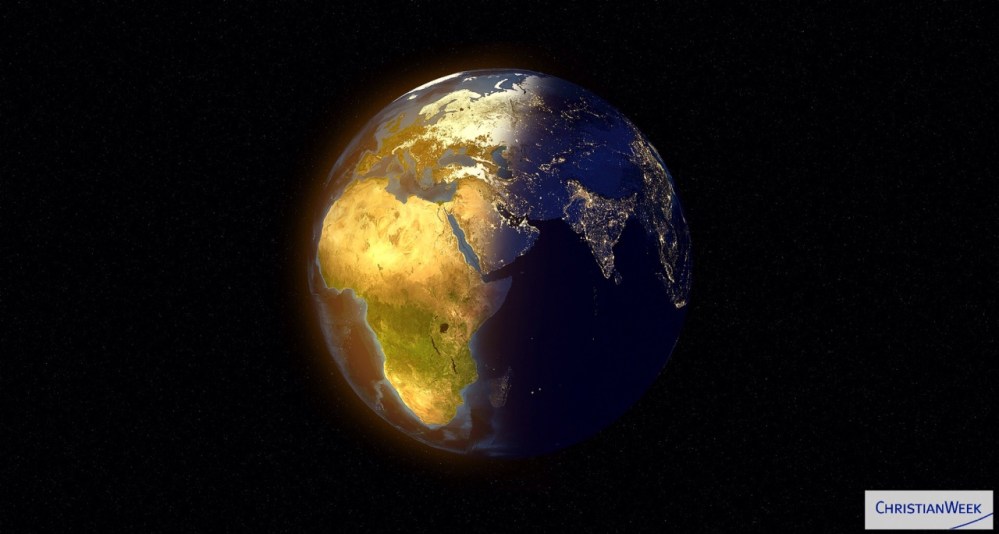
Reflecting on a theology of the last things
By Brandon Andress
November 7, 2016
From the words of the prophets in the Old Testament leading up to and culminating in the teachings of Jesus, through the writings to the early Church, there is a sense that God isn’t giving up on the creation that was called “good” from the very beginning.
In fact, there is very clear scriptural evidence that God has always had every intention of renewing and restoring the entire created order, rather than destroying it.
This is a strong assertion, being that it contradicts the teaching and understanding of many Christians who believe that God will one day destroy the heavens and the earth and then take them away to a spiritual heaven to live for eternity.
But as we look through the Biblical narrative, we find a creation suffering under the weight of sin and death (Romans 8). We find a creation subjected to frustration. We find a creation groaning for liberation from the curse under which it is has been placed.
Physical creation.
Tangible creation.
Touchable creation.
It is a creation that is enslaved and longing to be free, but not destroyed, not annihilated, not discarded, and not thrown into the trash bin of history. It is a creation that will be saved, renewed, and restored. (1)
And, it is not just the creation in which we live and which surrounds us that will be completely renewed and restored. We too long for liberation from death and decay as well.
Presently we have and enjoy the first fruits of the Holy Spirit given to us by God, which gives us a foretaste of the blissful things to come, but we also groan inwardly as we wait for the redemption of our bodies, which will reveal our adoption, or our manifestation as God’s sons and daughters (Romans 8:23).
A surprising discovery
This surprising discovery, which stands in stark contrast to the belief that God will one day destroy the heavens and the earth, is a beautiful synergy of God’s restorative work through Jesus Christ, not just for humanity, but also for the entire created order.
For God so loved the world (kosmos– the entire created order) that He sent His Son (John 3:16).
But, despite all that Paul has written about how creation will be set free from its bondage to decay and corruption, and despite Jesus talking to the disciples about the renewal of all things, there are still a couple of misunderstood verses that have led us to the believe that the earth will one day be destroyed and that our future hope is in a disembodied, spiritual heaven.
The material elements of the universe will flare and melt with fire? But we look for new heavens and a new earth according to His promise, in which righteousness (uprightness, freedom from sin, and right standing with God) is to abide (2 Peter 3: 12-13).
Then I saw a new sky (heaven) and a new earth, for the former sky and the former earth had passed away, and there no longer existed any sea (Revelation 21: 1).
At first glance, these verses seemingly contradict the very position I have proposed: that God is in the process of renewing and restoring all of creation. However, the key to unlocking these verses, and having a better and more comprehensive understanding of what the text is really saying, lies with the word new.
As we look at the original Greek language we find something very interesting. There are two words that can be used to describe something as new.
The first word is neo and is used to describe something that is new in time. For example, a house that is newly restored to its original condition could never be neo because it is not new in time.
When the house was first built it was neo, but being that it is now something old (archaios) being renewed or restored, it can never be described as neo again. Neo is not the word used in the passages from 2 Peter or Revelation.
The word that is used to describe the new heavens and the new earth in those passages is kainos. Kainos also means new, but it is describing something that is qualitatively new or renewed.
Interestingly enough, it is the word kainos that Paul uses to describe the Christian, as a new (kainos) creation. The individual Christian has not been vaporized into non-existence and newly created, rather the old (archaios) has passed away, and the new (kainos) has come (cf. 2 Corinthians 5: 17).
Therefore, the passages are not alluding to a heaven and earth that are destroyed and then replaced by a heaven and earth that is newly created. They are both speaking of the current heaven and earth passing from one condition to another (parachomai), being qualitatively renewed (kainos) to their full glory, which is beyond anything that we can comprehend.
The final destination for God’s people is not going up to God in heaven, while the earth and sky is destroyed. Rather, the final destination is a renewed world and cosmos in which God comes down to be among His people.
If that doesn’t get you excited about the possibilities in our future, I don’t know what will.
______________
For additional reading on this subject, see N.T. Wright, Surprised by Hope: Rethinking Heaven, the Resurrection, and the Mission of the Church.




